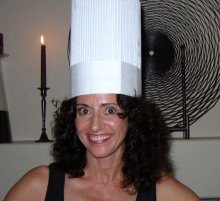You are here
Home ›The Eggs-traordinary Incredible Edible Egg!

An egg is one of the most complete and versatile foods available. Eggs are inexpensive and easy to prepare and can be consumed in a variety of ways throughout the day. More than ever, the egg is being recognized for its outstanding nutritional qualities. Nearly all the essential nutrients required for proper functioning of the human body are hiding under that shell.
Eggs are an excellent source of high-quality protein and protein is essential for building and repairing body tissue, as muscles, skin and organs are all made from protein. Eggs contain 11 essential nutrients, and are one of the rare food sources of vitamins A, D and K. They are also an excellent source of choline, an essential nutrient that plays an important role in brain development and memory.
Protein is comprised of 20 different amino acids, 8-10 of which cannot be produced by your body. These amino acids are essential and must be provided by your diet. Eggs contain all of the essential amino acids, which are valuable building blocks of protein. One large egg contains about 6 grams of protein, 5 grams of fat and only 70 calories. Eggs contain no carbohydrates.
Contrary to popular belief, eggs do not have a negative effect on blood cholesterol levels, but the cholesterol in eggs can be damaged by heat. For example, cholesterol oxides are formed when eggs are fried and these oxides are implicated in cardiovascular damage. Therefore, it is important to understand how to cook an egg and how to minimize this effect.
The eggs of hen, duck, goose, quail, turkey, and turtle are consumed in different parts of the world, the hen variety being the most popular. The shell pigmentation of white or brown does not bear any relation to the nutritive value. However, it is important to buy the highest quality of egg that you can find. The health of the chicken and its diet directly affect the nutritional content of the egg produced. Look for free-range or free-run, drug-free, omega-3, or vitamin E fed.

Hard Cooked Eggs
Hard-cooked eggs (eggs cooked in the shell in water) should not be boiled - simmer them in water. If boiled or cooked too long, the protein toughens or becomes rubbery and a greenish or purplish ring forms around the yolk. Place eggs in a single layer in a pan with enough cold water to cover them completely. Bring the water to a boil, remove from heat, cover tightly with a lid, and allow to remain in the water approximately 15 to 20 minutes. Then place under running, cold water to cool quickly.
- Soft-cooked eggs: 3 to 5 minutes
- Medium-cooked eggs: 7 to 8 minutes
- Hard-cooked eggs: appox. 15 to 20 minutes
Poached Eggs
Bring water to a boil in a saucepan, add a touch of olive oil. Break the eggs one at a time into a sauce dish, and let down gently into the hot water. Set where the water will keep just below the boiling point; and when the white is "set," lift out on a perforated spoon, and place on whole grain toast, or on a warm dish, and serve.
Scrambled Eggs
Break as many eggs as desired into a bowl, and beat only slightly. Oil a frying pan with extra virgin olive oil or butter (ghee) and when pan is hot, add the eggs and a sprinkle of sea salt and fresh ground pepper. Scrape the bottom of the pan continuously with a spatula until the mixture is soft and jellied. Remove pan from heat, do not over cook the eggs and remember than excessive heat will damage both the fat and protein in an egg.
Serving suggestions:
- Serve eggs with fresh fruit/tomato and cottage cheese. Egg-cellent!
- Before adding eggs to pan add chopped onion, leftover meat, fish or chicken, tomato, green pepper, salsa, etc...
- Saute, then add eggs, top with goat feta cheese.
- When making an omelet I use club soda instead of milk, it makes the omelet lighter and fluffier. Egg-squisite!
- Keep unpeeled hard boiled eggs in the refrigerator for a quick protein snack.
Egg-splore the possibilities!
Photo by Sheila Pedraza Burk from Burst
Bon Appetite!...TKH

- Log in to post comments